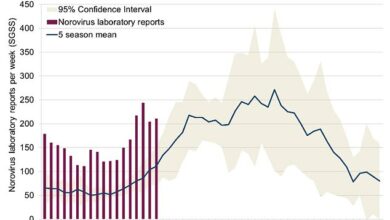New warning for gym-goers who take caffeine before workouts after tragic death of super-fit personal trainer





Health authorities have issued a stern warning against taking high doses of caffeine supplements, which are often used to aid exercise, following the accidental death of a super-fit father.
Personal trainer Thomas Mansfield, 29, died of cardiac arrest in January 2021, hours after consuming a mixture containing seven times the recommended daily dose of caffeine.
A few minutes after drinking the supplement mix (the amount of caffeine equivalent to 200 cups of coffee) he began “foaming at the mouth” and “holding his chest.”
The investigation found that Mr Mansfield, from Colwyn Bay, North Wales, had accidentally taken almost 16 times the maximum recommended dose stated on the back of the pack.
The Food Standards Agency (FSA) has issued another warning to customers, urging them to take extra care to ensure they take the correct doses.

Personal trainer Thomas Mansfield, 29, died in January 2021 from cardiac arrest within hours of consuming a mixture containing seven times the recommended daily dose of caffeine
The FSA’s chief scientific adviser, Professor Robin May, said: ‘Caffeine occurs naturally in many food products, but we have evidence that people are not aware of the higher concentrations of caffeine in some supplements and the risks this may pose.
‘Pure and highly concentrated caffeine supplements such as caffeine powder can be extremely potent.
‘Therefore, always follow the dosage instructions on the label and use the correct measuring equipment to ensure that the dosage is accurate.
‘If people experience side effects from caffeine, such as insomnia and agitation, they should be mindful of the amount of caffeine they consume through supplements, in addition to other components of their diet.’
The body added that it now recommends pregnant women limit their daily caffeine limit to 200mg – approximately two mugs of instant coffee or one mug of filter coffee.
They must also check the label to see if there is a warning that the product may be unsuitable.

Minutes after drinking the supplement mix – which had the caffeine content of 200 cups of coffee – he began ‘foaming at the mouth’ and ‘holding his chest’

An investigation found that Mr Mansfield, from Colwyn Bay, North Wales, had accidentally taken almost 16 times the maximum recommended dose stated on the back of the pack
The FSA continues: ‘We also remind businesses that they have a responsibility to provide safe food and to comply with food labelling and composition requirements, so that consumers have information they can use to make informed choices about what they eat.’
Caffeine comes in various forms, such as powders, gels, capsules and effervescent tablets. It is said to provide a quick energy boost.
Many products are targeted at gym-goers and are called “pre-workout” supplements that can improve endurance.
Mr Mansfield is said to have ordered his powder from supplement company Blackburn Distributions.
The recommended dosage of the powder is 60 to 300 mg twice daily.
But the inquest into Mansfield’s death in 2022 found his digital scale could only measure a dose of 2 grams, almost seven times the maximum dose.
The hearing was told Mr Mansfield was ‘probably aiming for a medium portion’ but instead drank up to 5g of the powder.

The recommended dose of the powder is 60 to 300mg twice a day. But the inquest into Mr Mansfield’s death in 2022 heard his digital scales could only measure from 2g — almost seven times the maximum dose
Within minutes of Mr. Mansfield calling an ambulance, Emergency services arrived and attempted to recalibrate his ‘abnormal’ heart rhythm using a defibrillator.
He was rushed to hospital in Ysbyty Glan Clwyd after suffering a cardiac arrest, but was pronounced dead there at 4pm on January 5, 2021.
An autopsy found he had 392 mg of caffeine per liter of blood, equivalent to 200 cups of coffee.
The study found that death can be caused by a concentration of 78 mg per liter of blood or higher.
The medical cause of his death was caffeine poisoning.
Chief Coroner John Gittins recorded Mr Mansfield’s death as an accident due to the unintended consequence of ingesting caffeine powder.
He added that he was ‘reassured’ that the brand had taken action to provide a measuring scoop and an A4 instruction sheet.
After his death, friends raised money for the family, including Mr Mansfield’s wife and his children Tommy and Millie.
Her wife Suzannah wrote on social media that she was “completely devastated” by the tragedy.
She said, ‘He was my whole life, I’ll never get over this. You were my life Tom.
“I miss you so much and am trying so hard for the kids to keep it together. I love you more than I could love anyone. I will always love you.”
Self-employed Mansfield taught fitness classes at his personal training business and lived by the motto: ‘With you every step of the way.’




